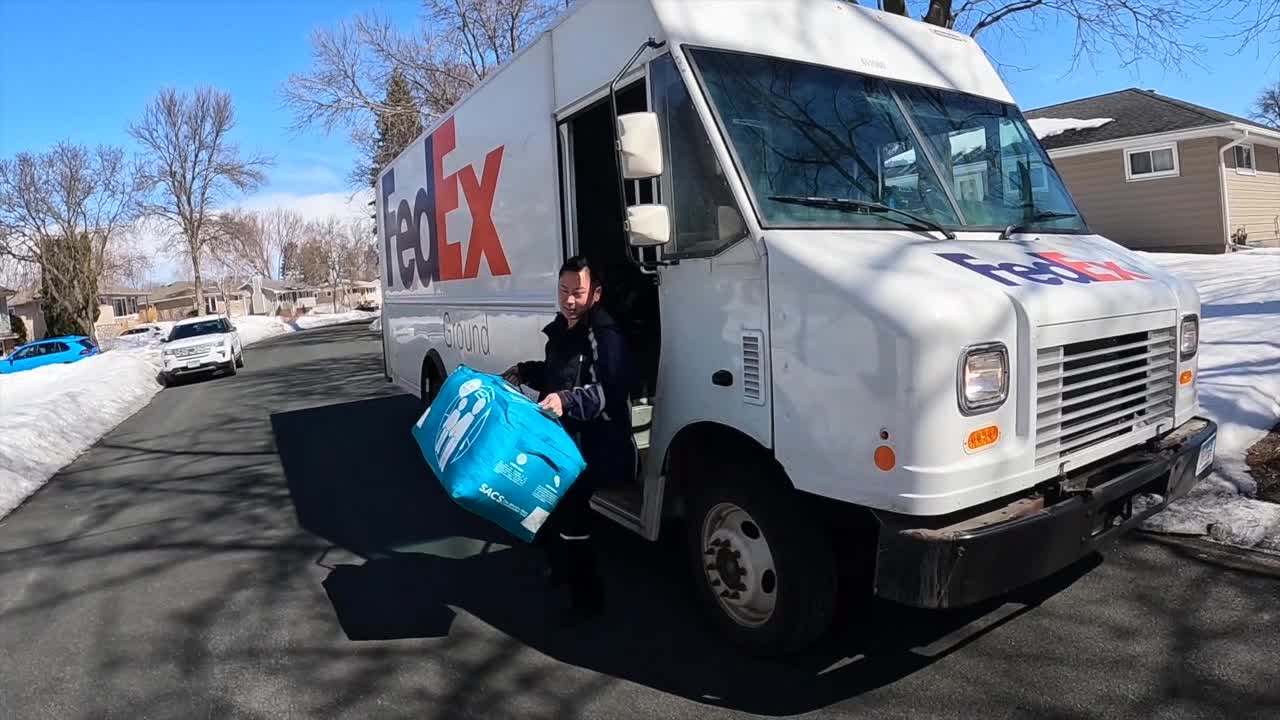New fees for home delivery, Uber and Lyft in play at State Capitol
[anvplayer video=”5169202″ station=”998122″]
The State of Minnesota might have a nearly $18 billion budget surplus, but many roads and bridges remain in a state of disrepair and need new money that doesn’t come from the general fund. So, DFL lawmakers proposed new fees on nearly every home delivery of goods and meals, as well as new fees on Uber and Lyft rides.
“One of the things we need to start looking at is creative new ways to generate revenue for transportation,” says Rep. Erin Koegel, DFL-Spring Lake Park, author of the bill to impose delivery fees. She disclosed she’s among those who would be hit by this fee. “We probably have about five deliveries to my house every week and so that would be about $195 over the course of a year.”
Koegel said the new fee would encourage her to bundle her orders to get the same goods, but with fewer deliveries. Restaurant operators say many of their customers wouldn’t have that option.
“We have many guests who are unable to leave their homes due to disability,” testified JJ Haywood, CEO of Pizza Luce restaruants in the Twin Cities and Duluth. “They order multiple times per week as we provide free delivery of inexpensive healthy food options. This fee will add up for these guests.”
Another local restaurant chain, Davannis, says the fees would also increase the cost of doing business.

“There will be costs incurred by us as retailers to implement this both at point of sale and accounting systems as well as administrative costs to accurately account for and remit these fees,” said Rob Williams of Davannis.
The tech industry is involved in e-commerce and says the bill will hurt businesses and consumers.
“Minnesotans cannot afford an extra tax on deliveries during these times of inflation, crippled supply chains and economic uncertainty,” Kouri Marshall of the tech group Chamber of Progress told lawmakers.
But supporters say the state can’t afford to keep underfunding highway construction.
“We need ongoing, dedicated revenue sources that will allow the state to maintain and repair the thousands of miles of roads and thousands of bridges needed for the movement of people and goods,” said Margaret Donahue of the Minnesota Transportation Alliance.
Lawmakers and supporters cited Colorado as a state that passed a similar fee. However, the fee that went into effect last year is only 27 cents, and just last month Colorado lawmakers were considering exempting small businesses from having to impose the fee.
“I want the committee to know there has been significant fallout in the business community, the small business community, in the state of Colorado,” Marshall testified.
The committee also heard a bill to impose an unspecified fee on Uber and Lyft rides. Rep. Frank Hornstein, DFL-Minneapolis, says other states have raised $10-25 million per year with a fee on “Transportation Network Companies.” He says the fees on deliveries and ride shares are among many new ways to create new transportation revenue.
But a spokesman for Uber Technologies says they already pay a lot of fees.
“We pay significant fees across our footprint,” says Joel Carlson of Uber. “It costs $7 to go in and out of the Metropolitan Airports Commission. We pay $35,000 to the cities of St. Paul and Minneapolis to license our business. The higher the fees, the higher the costs. You will depress demand. You will cause this business to suffer because people won’t do it, they’ll drive their own cars.”
The bills to raise fees will be considered for inclusion in a larger transportation funding bill later this session.